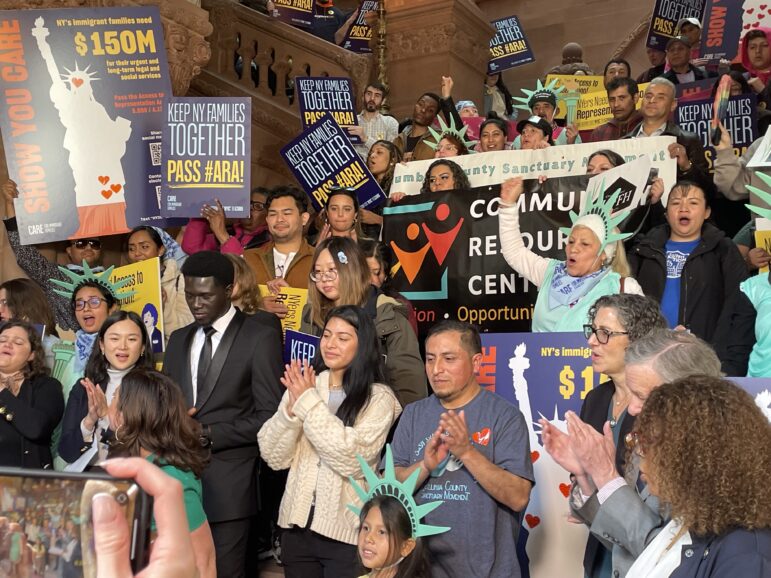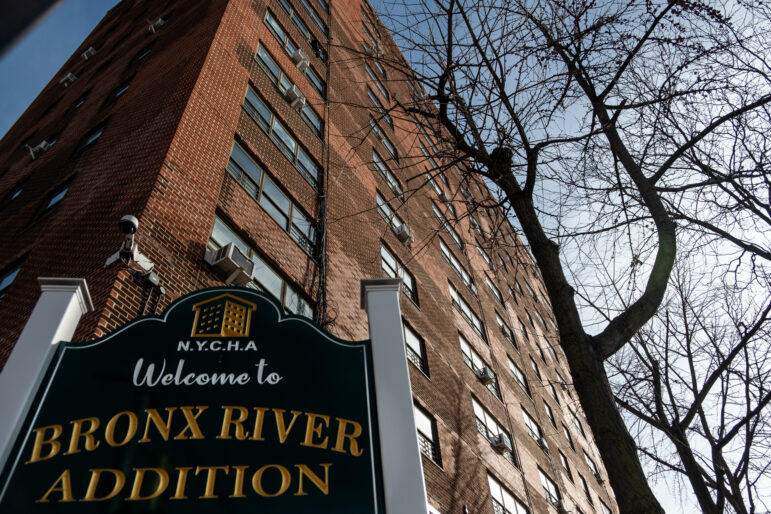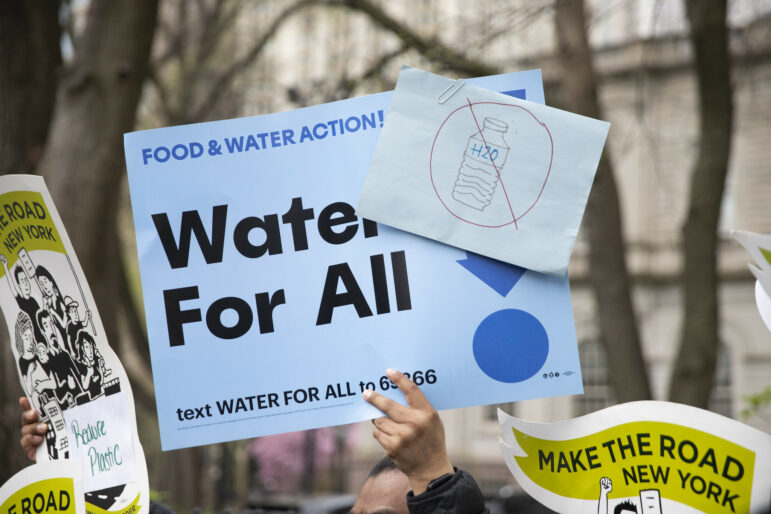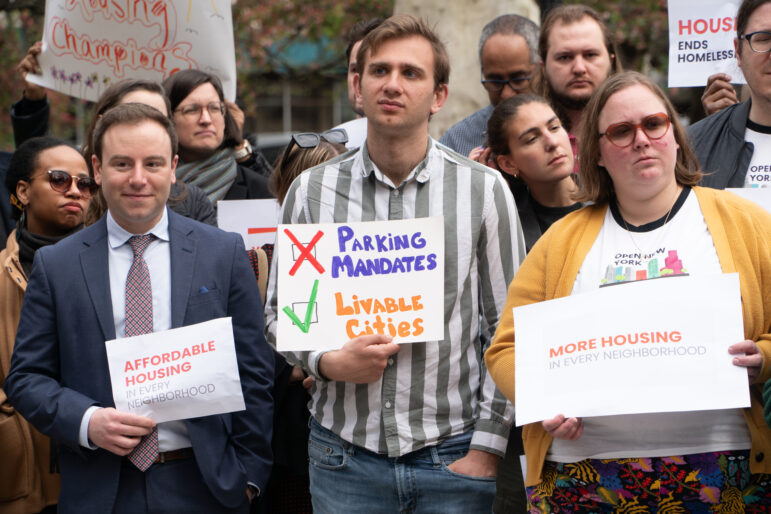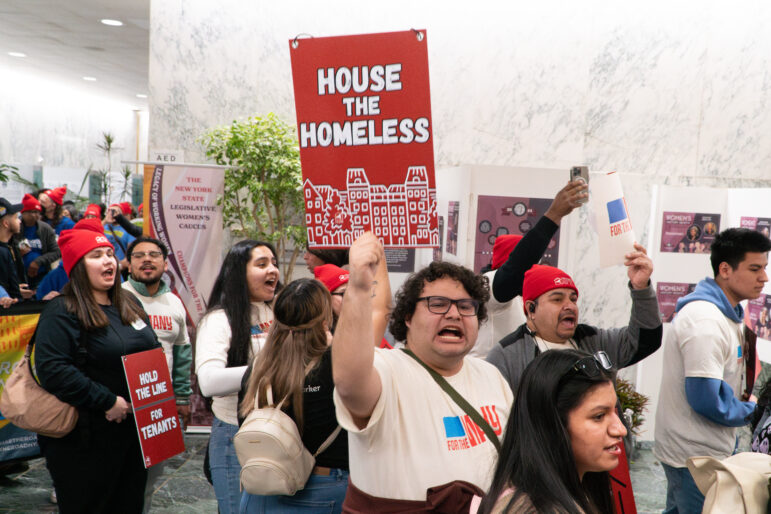Darlene Mealy, a New York City Transit worker and neighborhood activist, made news in September when she cracked the Boyland family’s three-decade political dynasty in the Democratic primary race for City Council. Her district spans some of Brooklyn’s poorest neighborhoods, including Bedford-Stuyvesant, Brownsville, and East Flatbush. Since January, she’s been busy meeting with constituents, attending hearings at City Hall, and serving on an array of committees: Transportation, Women’s Issues, Small Business, Youth Services, Juvenile Justice, Civil Rights and Immigration. Friendly and composed, Mealy met with City Limits last week to discuss her first month as an elected official.
Q: How did you get involved in politics?
A: It wasn’t that I decided. It was the community. At one point, this block was saturated with drugs. I said no one should have to live like this. We had a murder every other day on the block. I said enough was enough, and I started organizing the community. These blocks were all separate, with separate [block association] presidents. I said the only way anyone would listen to us was if we became one strong voice and I talked to all the presidents and we came together and created one organization. So it’s nine blocks, named FARR Community Association. That’s Fulton Street to Atlantic Avenue, Ralph Avenue to Rochester Avenue.
Q: How did the Boyland legacy set the stage for your first term?
A: I just have to do what I know is right by the community and for the community. There are people who dared to be different, and not vote the same way they’ve voted for three decades, to try someone new.
Q: Was there a problem with how the neighborhoods were being served?
A: People want to know who you are. And that was one of [the Boylands’] mishaps — that they didn’t connect with people. I never want to get comfortable or take the people’s vote for granted. I’m like them. No political background, no family ties to politics. I’m just another person, a block association president, trying to get things changed in the community.
Q: Do you enjoy working on legislation?
A: I’m more of a hands-on individual, so I like to make things happen, right then and there. But now I have to sit down and investigate to make sure that any law we try to pass is helpful to the community. It’s different. But I’m learning it and I’m enjoying it. I’m not going to sit here and act like I know everything. I have my colleagues. They’re helping me as much as they can to guide me in the right direction. Whatever questions I need to ask, I ask.
Q: In terms of difficulty, has anything been harder than you expected?
A: Just the politics of City Hall.
Q: How so?
A: Being an independent voice is very important to get what your community needs. You don’t have to be part of a clique. You’re there to represent the needs of the people, the best that you’re able to serve them. And if that means standing alone sometimes, I will do that, just for the people.
Q: What are your priorities? What do you hope to accomplish in your first year?
A: Right now, we’re still fighting over housing projects. They want to put a parole office there, in the middle of the projects. What kind of message are you sending to our youth? Now that I’m on the Juvenile Justice Committee, and a Juvenile Correction facility is [already] right here, I can still try to stop [the parole office] from coming into our district.
I also want to bring more jobs to the community. With all of these contracts coming in, people in the community should get some of these jobs. We definitely need entrepreneurship training.
Q: Do you think you’ll go back to the MTA when you leave City Hall?
A: No, I’d like to start my own business. I want to open up a sandwich shop: salami, bologna, spiced ham, everything. To serve people. I think it’s a bloodline in my family. We like to do the best that we can with people. That would be right down my alley. I would be enjoying myself with that, no matter which way it goes. Maybe at a time like this I was needed, to be here and to do what the community needs, to serve them. And once that time is done, I [will have] fulfilled a purpose in life that I knew was intended for me.


